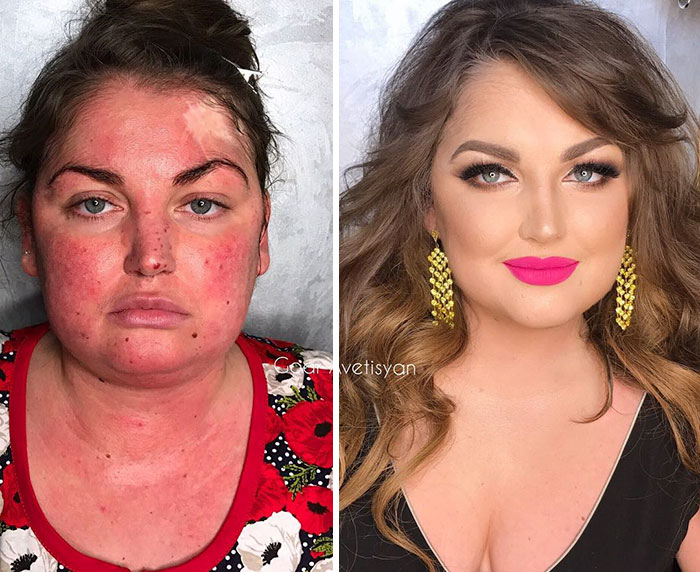Unveiling The Art Of Transformation: A Comprehensive Guide To Makeup Syllabi
Unveiling the Art of Transformation: A Comprehensive Guide to Makeup Syllabi
Related Articles: Unveiling the Art of Transformation: A Comprehensive Guide to Makeup Syllabi
Introduction
With great pleasure, we will explore the intriguing topic related to Unveiling the Art of Transformation: A Comprehensive Guide to Makeup Syllabi. Let’s weave interesting information and offer fresh perspectives to the readers.
Table of Content
Unveiling the Art of Transformation: A Comprehensive Guide to Makeup Syllabi

The world of makeup is a captivating blend of artistry, science, and self-expression. It empowers individuals to enhance their natural features, explore different aesthetics, and cultivate a sense of confidence. To navigate this fascinating realm, a structured learning path is essential, and that’s where a well-designed makeup syllabus comes into play. This comprehensive guide delves into the intricacies of makeup syllabi, exploring their structure, content, benefits, and real-world applications.
Understanding the Makeup Syllabus: A Blueprint for Beauty
A makeup syllabus serves as a roadmap for acquiring the knowledge, skills, and techniques required to excel in the field of makeup artistry. It outlines the curriculum, learning objectives, and assessment methods, providing a clear framework for students to progress systematically.
Key Components of a Comprehensive Makeup Syllabus
1. Foundation of Makeup Theory:
- Skin Anatomy and Physiology: This section delves into the structure and functions of the skin, understanding its various layers, conditions, and responses to different products.
- Color Theory: Students learn about color relationships, complementary and analogous colors, color correction techniques, and how to create harmonious color palettes for different skin tones and occasions.
- Product Knowledge: A thorough understanding of makeup products, their ingredients, textures, finishes, and application techniques is paramount. This includes exploring foundations, concealers, powders, blushes, bronzers, eyeshadows, eyeliners, mascaras, lipsticks, and more.
- Hygiene and Sanitation: Maintaining a clean and sanitized workspace is crucial for both the artist and the client. The syllabus covers proper hygiene practices, product handling, and tools sterilization.
2. Practical Makeup Applications:
- Face Makeup: This encompasses the art of creating flawless bases, contouring and highlighting, applying blush and bronzer, and achieving a natural or dramatic finish.
- Eye Makeup: Students learn various eye makeup techniques, including eyeshadow blending, eyeliner application, lash application, and creating different eye shapes.
- Lip Makeup: This section covers lip liner application, lipstick and gloss application, and techniques for achieving various lip shapes and colors.
- Special Effects Makeup: For those interested in theatrical makeup, special effects makeup introduces the techniques for creating wounds, bruises, and other visual effects.
3. Industry Standards and Professionalism:
- Client Consultation and Communication: Effective communication is essential for understanding client needs, preferences, and skin conditions. The syllabus includes training on client consultations, communication skills, and building rapport.
- Portfolio Development: Creating a professional portfolio showcasing skills and artistry is crucial for attracting clients and advancing in the industry. The syllabus may include guidance on portfolio building, photography, and showcasing techniques.
- Business and Marketing: For aspiring makeup artists, understanding basic business practices, marketing strategies, and building a professional brand is essential. The syllabus might cover topics like pricing, social media marketing, and networking.
Benefits of a Structured Makeup Syllabus
- Systemic Learning: A well-structured syllabus ensures a logical progression of learning, allowing students to build a strong foundation and gradually master advanced techniques.
- Skill Development: The practical application sections provide hands-on experience, allowing students to develop their technical skills and refine their artistry.
- Industry-Relevant Knowledge: Syllabi often incorporate industry trends, best practices, and safety standards, equipping students with the necessary knowledge to navigate the professional makeup world.
- Confidence Building: Mastering makeup techniques and acquiring a comprehensive understanding of the industry fosters confidence and empowers students to excel in their chosen field.
- Career Advancement: A strong educational foundation, evidenced by a completed makeup syllabus, can enhance employability and open doors to various career opportunities.
Real-World Applications of Makeup Syllabi
- Professional Makeup Artistry: Makeup syllabi are the cornerstone of training for aspiring makeup artists, equipping them with the necessary knowledge and skills to work in various sectors like fashion, film, television, and beauty salons.
- Personal Makeup Enhancement: Individuals can benefit from a makeup syllabus by learning techniques to enhance their natural features, experiment with different looks, and achieve a more confident and polished appearance.
- Beauty Industry Professionals: Makeup syllabi are valuable for professionals in the beauty industry, such as estheticians, cosmetologists, and salon owners, who can use this knowledge to expand their services and cater to diverse client needs.
Frequently Asked Questions (FAQs) about Makeup Syllabi
Q: What are the prerequisites for enrolling in a makeup course?
A: While prerequisites may vary depending on the institution, generally, no prior experience in makeup is required. However, some courses might prefer a basic understanding of hygiene and sanitation practices.
Q: How long does a typical makeup course last?
A: The duration of a makeup course can range from a few weeks to several months, depending on the program’s depth and intensity.
Q: What are the different types of makeup courses available?
A: Makeup courses are offered in various formats, including:
- Certificate Programs: These programs provide a comprehensive introduction to makeup artistry and are often suitable for beginners.
- Diploma Programs: More advanced programs offering in-depth training in various makeup techniques and industry standards.
- Workshops and Masterclasses: These shorter programs focus on specific skills or techniques, offering specialized learning opportunities.
Q: How can I find a reputable makeup course?
A: Look for courses accredited by reputable organizations, read reviews from previous students, and inquire about the instructors’ experience and qualifications.
Tips for Choosing a Makeup Syllabus
- Clearly Defined Objectives: Ensure the syllabus outlines specific learning outcomes and skill development goals.
- Comprehensive Curriculum: Look for a syllabus that covers a wide range of essential makeup topics, including theory, practical application, and industry standards.
- Experienced Instructors: Choose a course taught by experienced and qualified makeup artists who can provide valuable guidance and mentorship.
- Hands-on Training: Prioritize courses that offer ample hands-on practice and opportunities to work with real clients.
- Industry Relevance: Select a syllabus that incorporates current industry trends, techniques, and best practices.
Conclusion: Embracing the Transformative Power of Makeup
A well-structured makeup syllabus is a powerful tool for unlocking the art of transformation. It provides a systematic framework for acquiring knowledge, developing skills, and fostering confidence in the world of makeup artistry. Whether aspiring to a professional career or simply seeking to enhance personal style, a makeup syllabus can empower individuals to embrace the transformative power of makeup and unlock their full creative potential.








Closure
Thus, we hope this article has provided valuable insights into Unveiling the Art of Transformation: A Comprehensive Guide to Makeup Syllabi. We appreciate your attention to our article. See you in our next article!